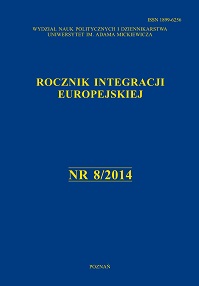Wybory do Parlamentu Europejskiego w Niemczech (25.05.2014) – analiza i następstwa
Elections to the European Parliament (25 May, 2014) – analysis and consequences
Author(s): Krzysztof KubiakSubject(s): Politics / Political Sciences
Published by: Uniwersytet Adama Mickiewicza
Keywords: Germany; European Parliament; elections; Alternative for Germany
Summary/Abstract: The paper is concerned with the analysis of the European elections in Germany. Their results did not bring about any major surprises. The Christian Democrats won, with the Social Democrats coming second, while subsequent places were taken by the mid-sized parties, i.e., the Green Party and Die Linke. The eurosceptic Alternative for Germany (AfD) proved highly successful, while the liberal FDP suffered a crushing defeat. In contrast to many other European countries, such as for instance France or Great Britain, the German elections brought victory to decisively pro-European parties, which gained over 75% of the votes cast. This seems tantamount to the acceptance by a majority of Germans of the present course of European politics taken by the main political forces. One clear innovation in the elections involved the abandonment of the electoral threshold, which resulted in a major fragmentation of German MEPs, who now come from 14 different parties – including seven small parties to place a single representative in the European Parliament. The elimination of the threshold did not result in a change in the overall level of support for small parties, though.
Journal: Rocznik Integracji Europejskiej
- Issue Year: 2014
- Issue No: 8
- Page Range: 303-3016
- Page Count: 14
- Language: Polish

